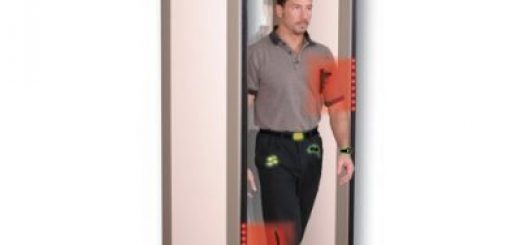Bullet-resistant Windows (Bullet-resistant glass) uses, advantages and disadvantages
Bullet-resistant glass is designed to look like regular glass, while it provides much more resistance to breakage, companies, and high-profile individuals choose to install bullet-resistant windows in their homes, cars or places of business to increase safety.
Bullet-resistant glass
Bullet-resistant glass is made of polycarbonate thermoplastic and laminated, tempered glass which absorbs the energy from the blows of the bullets, the axes, the bats, or the other objects that are being used to break the glass, Due to their strength, making the staff and the customers feel safer.
The term bullet-proof glass suggests a material that is 100% impenetrable to gunfire, It is not the case, No type of bulletproof glass can hold up forever against extremely powerful weapons that is why the term bullet-resistant glass is preferred by those in the industry.
The bullet-resistant glass has a range of applications, including security and military vehicles, banks, hospitals, government buildings, pharmacies, police stations, and Jails and it plays a significant role in saving lives.
Advantages of Bullet-resistant glass
Despite the name, Bullet-proof glass is not for stopping bullets, The appropriately designed and installed bullet-resistant window system is disaster-neutral, equally prepared to protect the people from armed malcontents, extreme weather, industrial disasters, and other unforeseen cataclysms.
The monolithic acrylic is used for lower-level bullet-proof windows, This material is extremely hard, In thick layers ( over 1.25 inches) it will deflect most pistol-caliber bullets–even under sustained fire, The pressure wave of the bomb blast or full-on impact of hurricane-flung debris will compromise these windows.
The Bullet-resistant glass built around polycarbonate thermoplastic has much broader applications, Polycarbonate is more resilient than any other glazing material, Polycarbonate can absorb tremendous impacts and pressure waves without cracking.
Without Polycarbonate layers, It is impossible to make the bullet-resistant windows capable of stopping rounds from high-powered rifles and submachine guns.
Polycarbonate is a soft material, It swallows up the bullets and it sends them ricocheting at high speed, this lack of rigidity can make it tricky to work with and maintain.
To take full advantage of Polycarbonate flexible resilience, It is laminated in layers with other materials, such as acrylic or tempered glass and it is the key to creating ultra-resilient glass-clad polycarbonate.
The bulletproof glass goes beyond just stopping the bullets, It will also foil smash-and-grab burglars and angry mobs, deflect bomb blasts, and even protect against earthquake damage and tornado-tossed bricks.
The formulated and layered polycarbonate ballistic windows can possess more exotic properties, such as “one-way” ballistic characteristics and fire resistance, You can see lives and property lost not just to the bombs and the bullets, but also to the raging wildfires, super-storms and civil unrest abroad.
Bullet-resistant glass is much stronger than regular glass, It can withstand a round of strikes from bullets and other objects, It increases safety, It can be used to replace windows in homes, businesses, or cars.
The bullet-resistant glass has been used for years in financial institutions, It is designed to prevent the bullets from passing through an exterior wall into the interior, while allowing the bullets to pass from the interior to the exterior.
It is not the thickness that makes the glass bullet resistant, As the bullet resistant glass has multiple layers of materials designed to absorb the shots, So, the impact will spread over a larger surface area and the bullet is slowed down before it can penetrate the glass.
The bullet-proof glass improves the safety in the work environment, Staff at counters can lock the doors and feel completely secure, These can make it more difficult for the burglars trying to access your property once everyone has gone home.
Bullet-resistant glass is used for banking institutions and jewelry stores, any company that stores high-value goods that appeal to burglars, It can reduce the theft risk and keep the staff and the customers safe.
Due to the durability of this material, The rocks, stones, bullets, and other heavy objects won’t get into the premises when bashed on the glass, The gunman can stand and fire a shot directly at the doors without compromising the people inside, This is a huge advantage to high-risk businesses.
Disadvantages of Bullet-resistant glass
Bullet-resistant glass is exceptionally appealing, It is used by high-risk businesses throughout the world, It can eventually break with repeated impact, and it is more difficult to cut and reduce the size.
Bulletproof glass is more expensive than regular glass, It can be costly and sometimes too pricey as it can add a couple of thousands more to your construction project, but it will eventually reduce your insurance costs.
As the bulletproof glass doors are thicker than the average glass material and offer the added security you would expect from this material, So, the price is inflated.
The bullet-resistant glass weighs significantly more than the standard glass, and when used in security vehicles, additional motors need to be installed to move the windows up and down.
You should not purchase your doors from any company, Always do some research to ensure the company can supply, install, and repair them if necessary, This means you only have one company to call when you need repairs or installation done.
You have to check to see if the glass companies you are thinking of have the necessary licenses and insurance in place, Always check to determine if they offer an emergency service.
Polycarbonate roofing sheets uses, types & properties
Polycarbonate panels advantages and disadvantages



